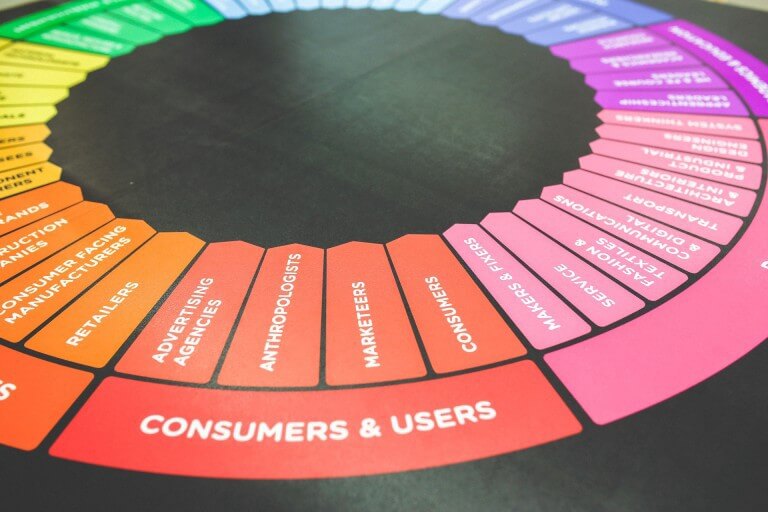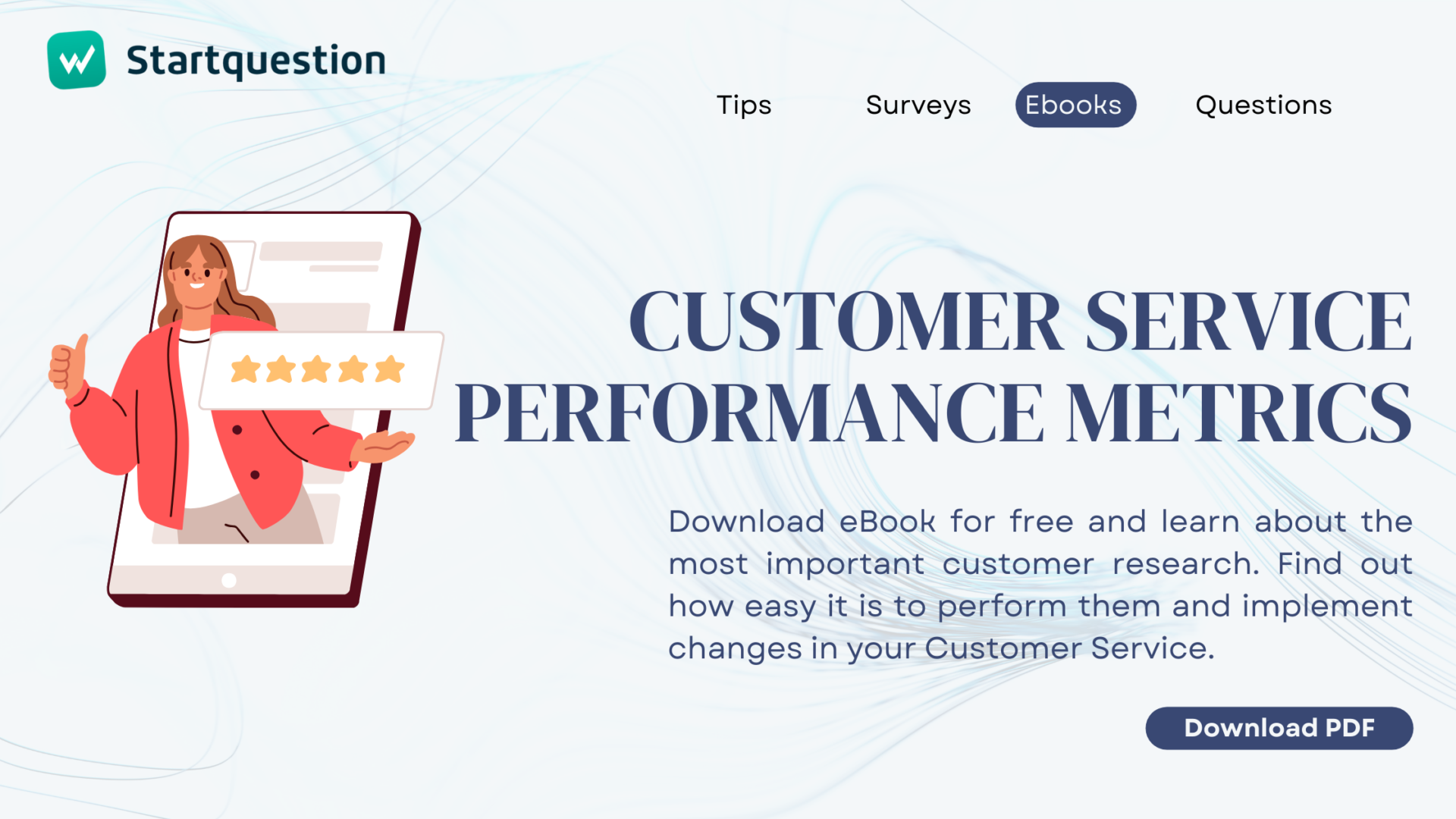Have you ever wondered why it comes so easy for some people to make friends and build good relations with them, while others struggle to communicate on almost every level? If you thought that you have to be born with extraordinary interpersonal skills to successfully develop relationships I’ll prove you wrong. Naturally, it might be easier for some people with specific personality traits, but it’s not something you cannot learn. We are all different, but there are many universal mechanisms that work in every situation. Not only will they help you grow your personal life, but they are also essential in the business environment, which is heavily based on cultivating relations with customers. Want to know them all? Sit back and read carefully.
Startquestion is a survey software
Gather feedback via weblink, social media, email, and more.
No credit card required · Cancel any time · GDRP Compilant
When I was 16 years old I got into self-development and the first book on this topic that I got was Stephen Covey’s “7 habits of Highly Effective People”. You probably have encountered this bestseller before. The book is extremely useful for getting things done and increasing your effectiveness in many dimensions of life. However, its application can reach many further areas than only improving your productivity. I love to go back to this reading because every time I discover something more I can leverage from the book in my life. In this article, I want to show you how it can help you in taking relations with clients to the next level.
Relations rule #1. Be proactive
Sounds like a cliché, doesn’t it? Of course, you need to be proactive if you want to be successful. Everyone knows that. However, not so many people actually apply it in their lives, especially when it comes to relations. The first thing you need to remember is that if you care about the other person, you have to take the lead. When we talk about client-brand relationships, a brand is always the one who cares more about it. Clients can find an alternative and turn to competition. They have a choice, you cannot afford to lose them.
Let’s take a restaurant as an example. Many factors attract clients to eat at specific places, but these days excellent customer service is the most important one. And excellent customer service stems from a proactive approach. The waiter should be welcoming from the time a guest enters a restaurant. From that moment every single move matters. Service should be a step ahead of the client. Taking orders quickly, asking if they are satisfied is essential to increase the chances that they will come back.
It is exactly the same in any other business. You cannot wait for the customer to make a complaint or praise you for perfect service. Remember that unsatisfied customers can leave without any notice. And never come back. You don’t want it to make happen. You need to take initiative and ask them how they feel about your brand. If everything is fine, you will get confirmation you are doing a great job. If a customer complains, you will be able to fix an issue on the spot and strengthen relationships with this customer.
Use ready-made survey templates for your research
Relations rule #2. Listen first and try to understand
Humans were given a pair of ears and only one mouth for a reason. We should listen at least twice as much as we talk. It means that whenever a customer reports a problem you should always listen to everything he has to say. Often customers get angry at you, even if an issue is not your fault. They might grumble, blame you and shout at you, but your job is to stay calm and listen to everything that they have to say. This is a crucial part of solving an issue and getting the relationship with a client on the right track. Many people, both in personal and business life listen to others only with an intent to reply. They do not give enough attention to what the other person has to say. They mostly focus on the response they are about to give. This approach will never give you a whole picture and will not let you understand another person entirely.
Imagine you are an Internet service provider. There was a technical failure that deprived people of a specific area of the Internet for the whole day. Naturally, it was not your fault and you could not do much about it. Many clients make complaints about the inconvenience. However, trying to convince them that you are not the one to blame is not the best option. In this case, you should put yourself in their position, understand them and finally take responsibility for what has happened. Getting into an argument with a dissatisfied customer will never do any good to you. A genuine understanding of their situation might turn detractors into brand ambassadors.
Relations are like a bank account
Stephen Covey’s metaphor of the Emotional Bank Account is probably the most accurate framework that describes interpersonal relationships. In simple words, it means that anyone you are connected to, whether friends, family, coworkers, or clients, has a common “emotional bank account” with you. It starts with a neutral balance at the beginning of every relationship, but each side makes deposits and withdrawals depending on what they put into the relationship. We do not deal with money though, but with so-called emotional units that we can deposit into this bank account. Making regular deposits in the form of the other person’s trust helps the relationship to grow. While withdrawing emotional units makes your balance become lower, weakening the relation. If you want to strengthen your relationship you need to make more deposits than withdrawals. That’s obvious. Let’s discuss the ways how to keep a positive balance on your account.
1. Understand the individual
I have already discussed this in the previous section. Truly understanding others is the first step to earning a deposit at someone else’s account. It seems easy, but in fact, requires a lot of effort from your side. You need to move from an egocentric approach and concentrate on the other person’s point of view.
2. Keep your commitments
This is another thing that most of us often struggle with. We tend to make promises that we cannot keep. This stems from humans’ natural preference for immediate rewards instead of thinking about future consequences. We prefer to say “yes”, “maybe” or anything similar instead of strong denial, because we can get on the side of another person at the moment of speaking. However, we do not think about the future consequences of not fulfilling the promise, which involves the risk of taking a major withdrawal from the Emotional Bank Account. If you have a slight feeling that you are not able to keep your commitment simply say “no”. If you make a promise though make everything that it takes to fulfill it. Betraying somebody’s trust is one of the worst things that destroy a relationship.
3. Little things matter
People tend to underestimate the power of little things. We think that in order to achieve big things we need to act big. However, the world is built on small things that combined together form something greater. Cultivating your relations should be a regular activity based on small deeds that would bring fruits in the future.
4. Be honest
This might sound obvious but there is nothing worse in a relationship than lying. Relations based on lies are never genuine and sooner or later will end. This goes a bit further though. Being honest means expressing all your expectations and commitments. You should not hide facts that are important to the relationship.
5. Learn to apologize
Naturally, you should do everything to prevent from making withdrawals on the emotional account. However, we are only humans and we do make mistakes. That’s how we learn. When it happens though, it is crucial to be able to apologize sincerely and reassure that you will not make the same mistake again. On top of that, apologies, when genuine can even strengthen a relationship afterward, as admitting to our imperfection, requires a lot of courage and shows you care about another person.
Apply Emotional Bank Account in relations with clients
As already mentioned, all the rules above apply in all kinds of relations, including the one between brand and client. This is a special kind, as a client that comes to your company has already given a deposit of trust in your brand. Your job is to make sure you will not let him down and do everything to cultivate the relation. Results are worth your effort. You can gain a loyal client who will spread positive word-of-mouth among his friends.
Every time a customer reports a problem, you should listen carefully and put yourself in his shoes. Understanding their problem is the first and very important step in solving an issue and consequently making a deposit on the client’s account. However, never say that you can fix something that you are not capable of. Many companies hastily promise to do what’s their best to solve a problem before making sure if they have sufficient resources. If a problem pops up react on the spot, but before you make any commitments apologize and say you will get back as soon as possible. Then after you look into the case, give the answer. If you are able to fix it, inform a customer about the time span and other details. If you cannot apologize again and simply tell the truth, explain why you are not capable of helping them. If you continuously keep promises you cannot fulfill and make too many withdrawals on the emotional account as a consequence your customers will eventually leave. Not only will they stop trusting you, but they will also stop respecting your brand. You can lose lots of current and potential customers because of the negative word-of-mouth.
Building relations with your clients cannot be an event when you handle their problems. It is a process that requires your daily commitment. People will love you if they feel you really care about them. As I said before you do not have to move the mountains for them, but small gestures that make them feel special can do miracles. Run regular surveys that study their satisfaction and give something extra to them. It can be a discount to thank for their loyalty or a small gift. Small things done regularly can contribute to a huge positive balance on their account. Keep that in mind and never stop indulging your clients.
Finally, if you do make a mistake never try to find any excuses. Putting blame on somebody else’s or external factors is not a good solution. Admit you made a mistake and apologize. If you do that genuinely they will understand.
To wrap it up, relations, whether personal or business, are a hard nut to crack. However, if you are honest and genuine with others, you can succeed and win people’s hearts. Good and long-lasting relationships are built on trust and daily care about each other. It is the same in the case of client-brand relations. If you want to keep your clients with you apply Stephen Covey’s habits in relation to them and grow!




